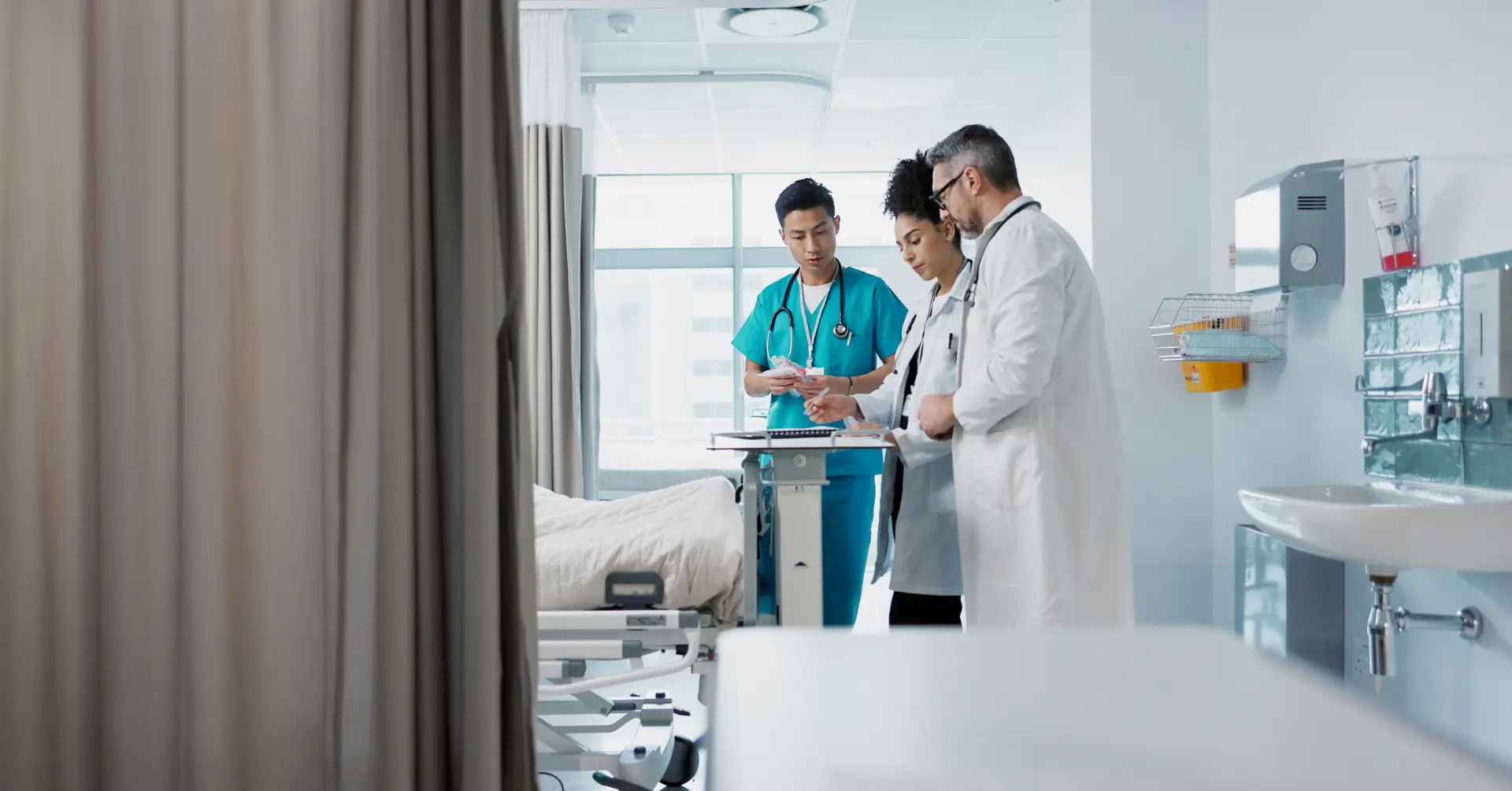Strong clinical leadership directly impacts both organizational success and clinician satisfaction. Medical directors who excel in their roles create environments where teams thrive, patients receive exceptional care, and operational goals are consistently met. The right leader can transform department culture, improve retention rates, and drive measurable improvements in patient outcomes.
Core leadership competencies checklist
Use this comprehensive framework to evaluate current medical directors or assess candidates for clinical leadership positions across your organization.
Clinical excellence and quality management
Maintains active clinical practice – Continues hands-on patient care to stay connected to frontline challenges
Drives quality improvement initiatives – Implements and monitors programs that enhance patient outcomes
Conducts regular performance reviews – Provides quarterly assessments and ongoing feedback to clinical staff
Oversees compliance programs – Ensures adherence to risk management and quality assurance protocols
Promotes evidence-based practices – Integrates latest clinical guidelines and research into department protocols
Operational leadership and strategic planning
Contributes to budget development – Provides meaningful input on departmental budgets and resource allocation
Sets measurable goals and objectives – Establishes clear, trackable performance targets for the department
Optimizes staffing and scheduling – Coordinates efficient staff deployment to meet patient demand
Manages equipment and resources – Ensures appropriate tools and supplies are available when needed
Develops policies and procedures – Creates and updates protocols for patient care, transfers, and emergency situations
Team development and culture building
Recruits and onboards new clinicians – Actively participates in hiring decisions and new physician integration
Mentors and develops staff – Provides guidance and professional development opportunities
Fosters team collaboration – Creates opportunities for formal and informal team building
Maintains positive problem-solving approach – Addresses challenges constructively and professionally
Promotes work-life balance – Supports scheduling and policies that prevent clinician burnout
Communication and relationship management
Engages with hospital administration – Maintains regular communication with leadership about departmental needs
Participates in medical staff meetings – Actively contributes to hospital-wide committees and initiatives
Includes non-clinical staff in decision-making – Involves all team members in discussions affecting their roles
Manages patient and staff complaints – Addresses concerns promptly and professionally
Assesses staff satisfaction regularly – Monitors team morale and addresses issues proactively
Patient-centered leadership
Prioritizes patient satisfaction – Makes patient experience a central focus of all department activities
Ensures consistent, courteous care – Maintains high standards for patient interactions across all shifts
Coordinates education programs – Develops training that supports both clinical and non-clinical staff growth
Collaborates with other departments – Works effectively with ancillary services and other medical specialties
Advocates for patient needs – Represents patient interests in operational and policy decisions
The impact of strong clinical leadership
Medical directors who excel across these competency areas consistently deliver measurable results. For clinicians, this means higher job satisfaction, reduced turnover, better work-life balance, and enhanced professional development opportunities. Patients benefit from improved quality metrics, more efficient care delivery, enhanced safety outcomes, and better coordination across departments. Organizations see stronger operational performance, improved regulatory compliance, enhanced reputation, and better alignment between clinical and administrative goals.
Building leadership excellence
Effective clinical leadership requires ongoing support and development. Medical directors need access to resources, training, and peer networks that help them excel in their complex roles. Organizations that invest in comprehensive leadership development create environments where both clinicians and patients thrive.
Ready to strengthen your clinical leadership team? Connect with a member of the SCP Health team to learn how we can support your medical directors with the resources and expertise they need to excel in their complex roles.






